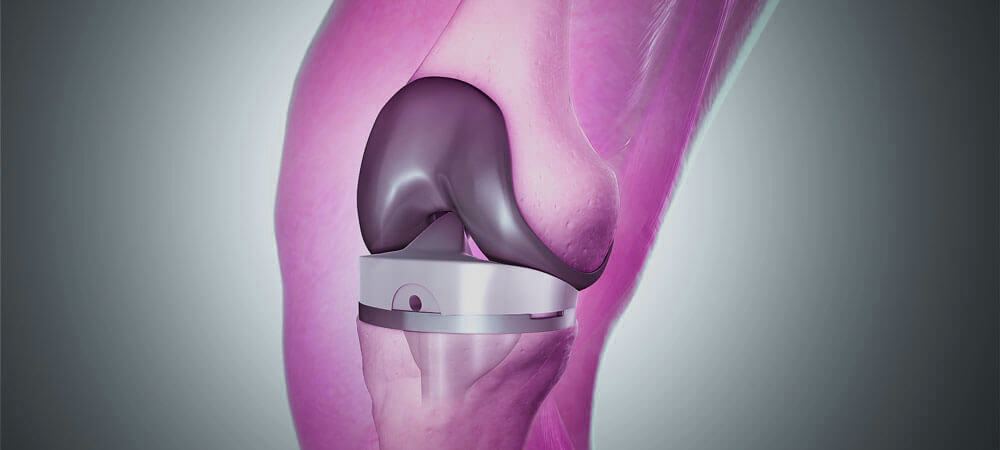What is Knee replacement surgery?

Dr Satish Reddy senior consultant orthopedic surgeon at Kim's hospitals Secunderabad Shares his insights on knee replacement surgery. What is a knee replacement surgery? A knee replacement is resurfacing of the lower end of the femur and or the thigh bone, and the upper end of the tibia or the leg bone. There are two types of Knee replacement partial knee replacement where one part of the knee is replaced and total knee replacement where the entire knee joint is replaced. What usually happens during a knee replacement surgery is the doctor shaves off a few millimeters of the bone and replaces it with metal and plastic. This helps in regaining smooth movement at the knee.
When to consult a doctor?
Very often patients come with pain at rest, not being able to do their everyday activities or the need to take pain killers on a regular basis. In these three conditions it is advised that the patients get a knee replacement done when there is a deformity or when you're having pain at rest. Any amount of treatment which includes injections like PRPs, steroids or hyaluronic acid or any treatment which has been told by celebrities or any other so-called experts is not going to help you in regaining any quality of life. Until you get a procedure done you will be in pain and at the same time taking these medications, which is unnecessary, you cannot regain once worn out cartilage as on day today. So it is better to get a knee replacement done to regain your quality of life, get over the disability and enjoy a pain free life rather than undergoing these kinds of treatments which are not going to solve your problem. Knee replacement is the definitive answer to patients with end stage arthritis.
Before and after knee replacement surgery
Before and after knee replacement surgery are important guidelines that help the patients. A few tests are done such as a physical examination and X-rays, MRI scans, etc. for imaging, to confirm if knee replacement surgery is the best suitable treatment for your knee condition. As important as before and after knee surgery guidelines are, so are during and after the procedure;
- A thorough and complete medical checkup is conducted few weeks prior to the surgery. Including the usual urine and blood examinations for any indications of infection. EKG studies and chest x-rays are taken to identify any lung or heart conditions.
- Prior the surgery you are prohibited to eat or drink anything for 6-12 hours.
Post surgery the patients are transferred to a recovery room and an x-ray image is taken to reaffirm the location of the implant and their vitals are monitored.
Post-surgery:
- Medicines: Medicines are prescribed for short-term pain relief and to prevent the formation of blood clots.
- Knee exercises after knee replacement surgery: The physiotherapist will teach knee exercises after knee replacement surgery to strengthen the muscles and restore knee movements. The patient should begin moving the new knee joint 48 hours after the surgery.
- Supportive devices: A beneficial supportive device for the knee can be Continuous passive motion that improves the range of motion of your knee. The device does all the work while you relax.
You will be discharged in a couple of days after the surgeon guides you on the post surgery recovery process. Crutches and cane are provided until you regain stability and strength for a couple of weeks.
- Follow a balanced diet rich in iron, which aids in faster wound healing and in restoring muscle strength.
- Although we hear this a lot exercise as a regular routine can boost your healing.
FAQs
1. Do I need a knee replacement surgery?
Answer: Very often patients come with pain at rest, not being able to do their everyday activities or the need to take pain killers on a regular basis. In these three conditions it is advised that the patients get a knee replacement done when there is a deformity.
2. Can I eat or drink before the surgery?
Answer: Prior the surgery you are prohibited to eat or drink anything for 6-12 hours.
3. What are the different knee replacements?
Answer: There are two types of Knee replacement partial knee replacement where one part of the knee is replaced and total knee replacement where the entire knee joint is replaced.
4. What is the cost of knee replacement surgery?
Answer: The cost of knee replacement surgery differs from the type of knee replacement to the hospital that's treating you.
5. Is knee replacement helpful in treating arthritis?
Answer: Knee replacement is the definitive answer to patients with end stage arthritis.
